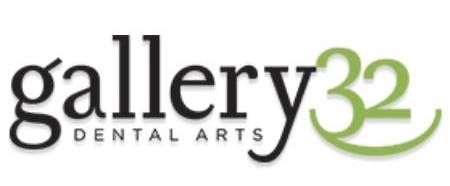
BLOG

What You Should Know About TMJ Disorder?
Do you ever experience jaw pain or discomfort? Have you noticed clicking or popping sounds when you open your mouth? If so, you might be familiar with TMJ disorder. This common condition affects millions of people worldwide and can have a significant impact on daily life.
Understanding TMJ Disorder
Understanding TMJ disorder is essential for anyone who experiences jaw pain or discomfort. TMJ stands for temporomandibular joint, which is the joint that connects your jawbone to your skull. This complex joint allows you to move your jaw up and down, side to side, and back and forth.
When there's an issue with the muscles, bones, or ligaments surrounding the temporomandibular joint, it can lead to TMJ disorder. The exact cause of this condition isn't always clear-cut and can vary from person to person.
One common factor in TMJ disorder is excessive stress on the joints due to teeth grinding or clenching. Other potential causes include misaligned teeth, arthritis in the jaw joint, or injury to the jaw area. The symptoms of TMJ disorder can range from mild discomfort to severe pain. Some individuals may experience difficulty chewing or opening their mouth fully. Others might hear clicking or popping sounds when they move their jaw.
Signs and Symptoms of TMJ Disorder
- One common symptom of TMJ disorder is jaw pain or discomfort. This pain may be localized to the jaw joint itself or radiate to other areas such as the temples, ears, or neck. Some individuals with TMJ disorder also experience difficulty opening their mouth fully or have a limited range of motion in their jaw.
- Another sign to watch out for is clicking or popping sounds when you open and close your mouth. These noises are caused by the displacement of the disc within the joint and should not be ignored. Additionally, some people with TMJ disorder may experience frequent headaches or migraines that seem unrelated to any other underlying condition.
- If you notice any changes in your bite pattern, such as sudden misalignment of teeth or problems chewing food properly, it could be a sign of TMJ disorder. Other symptoms include facial swelling on one side only, earaches without an infection present, and even tinnitus (ringing in the ears).
Treatment Options for TMJ Disorder
Once diagnosed with TMJ disorder, the treatment options will depend on the severity of your symptoms. In mild cases, self-care measures such as avoiding hard foods or gum chewing may be sufficient to alleviate discomfort.
For more moderate to severe cases, treatment options may include:
- Medications: Nonsteroidal anti-inflammatory drugs (NSAIDs) like ibuprofen can help reduce pain and inflammation associated with TMJ disorder.
- Oral appliances: A dentist might recommend using a splint or oral appliance that helps realign the jaw joint and relieve pressure.
- Physical therapy: Exercises targeting the jaw muscles can improve flexibility and strengthen the supporting structures.
- Behavioral changes: Techniques such as stress management strategies or relaxation exercises can minimize teeth grinding (bruxism) which often exacerbates TMJ symptoms.
- Dental procedures: In certain situations where misalignment of teeth contributes significantly to TMJ disorder, orthodontic treatments like braces or dental crowns might be suggested.
It's essential not only to find relief from immediate symptoms but also to address any underlying causes contributing to your condition – whether they are related to lifestyle habits (such as teeth clenching), structural issues (like bite alignment problems), or psychological factors (such as stress).
Visit Gallery 32 Dental Arts at 3580 Piedmont Road NE, STE #104, Atlanta, GA 30305, or call (404) 255-6929 to learn more about dental procedures. Our dentist will work with you to help you determine the best option for your condition.
Office Hours
MON - THU7:30 am - 4:30 pm
FRIBy appointments only
SAT - SUNClosed





comments